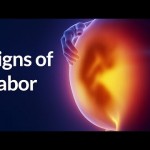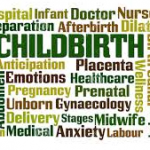Piles (Haemorrhoids) in Pregnancy
Haemorrhoids, which are generally known as ‘piles’, are enlarged and swollen veins in and around the lower rectum and anus. Piles can be itchy and painful, and they can sometimes make life miserable. Even going to the toilet or sitting down becomes uncomfortable and painful due to piles. You may feel them as soft lumps inside or around the edge of your bottom, which may bleed.
You may develop piles during labour, while you are pushing out your baby, or they may develop due to constipation after delivery. Piles add discomfort or pain to your day-to-day activities.
Warning! Keep in mind that rectal bleeding should be reported to the doctor although in most cases, cracks in the skin due to constipation are the cause of rectal bleeding.
Symptoms of Piles:
- Itching around your bottom
- Feeling that you still need to empty your bowels after you have done so
- Bleeding after passing a stool (you can feel it when you wash your bottom)
- Inflammation and soreness around your anus
- Mucus discharge after passing a stool
- Discomfort in sitting down
How to Deal With Piles
Piles are a common problem for pregnant women. There is no need to worry, but you need to manage them to make your own life easier during and after pregnancy. Normally, they disappear a few weeks after delivery.
- You can use any ointment prescribed by your doctor or ask a pharmacist at any good pharmacy for some ointment. Let the pharmacist know that you are pregnant.
- After going to the toilet, wash the affected area with lukewarm water. You can try washing in the tub, and if possible, soak there for some time.
- Clean the affected area with a soft cotton cloth or wet wipes/tissues. Clean gently because rubbing can make you feel worse.
- Drink a lot of water so that you don’t become dehydrated. If you are a tea or coffee addict, put a check on that, and caffeine intake in general should be lessened.
- Eat a high fibre diet to avoid constipation, which makes piles worse.
- Don’t strain when passing a stool. If you cannot manage your constipation with diet, ask your doctor for a laxative and fibre supplement.
You need to stimulate your bowel function to avoid constipation and piles. Take light exercise. If you cannot manage exercise, walk for at least a half an hour everyday. You can divide the thirty minutes over the course of the entire day. For example, you could walk for 5–10 minutes every couple of hours or ten minutes after every meal.
http://www.pakparenting.com/piles-haemorrhoids-in-pregnancy/http://www.pakparenting.com/wp-content/uploads/2015/04/Piles-In-Pregnancy.jpghttp://www.pakparenting.com/wp-content/uploads/2015/04/Piles-In-Pregnancy-150x150.jpgPregnancyPregnancy Problemspiles,Pregnancy,pregnancy-problemsHaemorrhoids, which are generally known as 'piles', are enlarged and swollen veins in and around the lower rectum and anus. Piles can be itchy and painful, and they can sometimes make life miserable. Even going to the toilet or sitting down becomes uncomfortable and painful due to piles. You...Pak Parenting Teamkhadija Imtinanadmin@pakparenting.comAdministratorPak Parenting





Leave a Reply